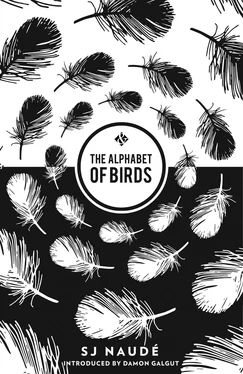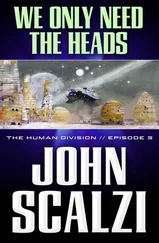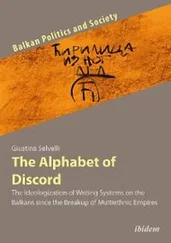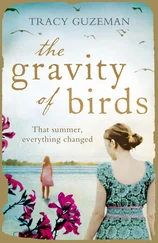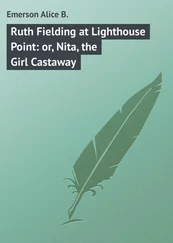Josch
You have, I realise tonight, taught me a few simple lessons (is there any other sort?) and for that I want to thank you. What are these lessons? In no particular order:
1. That one must learn to live with open endings.
2. That we like grafting our painful little stories onto other, greater narratives, onto stories filled with deeper trials and more intense pathos. Even though we want to weigh them down with meaning, they just remain what they are: our own stories.
3. One may linger in a beautiful room as long as possible. One does not have to open the door.
4. That everything is of short duration; we are permitted but a brief sojourn in a shadowy landscape.
5. I am (still) here. I am alive.
6. Pain is a soundless language, a different language to the birds’. (On reflection, this lesson may have come from my mother.)
7. That I owe the gods gratitude for a mother who loved me (loves me, if love is still possible). A mother who never forsook me, who cherished and protected me.
8. To keep the gleaming distant city fiercely in view, without a hand against the brow to shade the eyes.
What I taught you, if anything, I do not know. Perhaps just how tenderness feels when it bleeds through fingertips.
Tschüss, bis später.
He receives no response to his list of lessons. The correspondence ends.
One day, when he awakes from an afternoon nap after a long, gruelling night, he looks out the window and sees his father in the sunshine. When he goes down to his parents’ room, the bed is empty. He exits through the veranda doors. The light is sharp, the sun white.
‘What’s going on?’
‘She’s gone. They’ve come to take her away.’
‘Why on earth didn’t you wake me? I wanted to be there.’
His father shrugs his shoulders, keeps looking at the stirring leaves. ‘Meaning does not, after all, lie in the end. It’s just a moment like any other.’
He wants to grab his father by the shoulders and throw him onto the lawn.
We move a few months ahead. He still thinks of Joschka sometimes, more so now that his mother has died. Via a distant acquaintance, he hears that Joschka has moved to Bavaria, that he has renounced London and Berlin. He now lives near his sister in the Oberpfalz. There was a forest ranger’s hut close to the castle, he remembers, by the footpath, on the edge of the forest. Perhaps Joschka moved in there. Perhaps he goes wandering in the mornings, climbing one of the fire towers at dawn, looking out over the fog-shrouded valleys. He could not say, they no longer speak. These days, when he tastes something sugary, he imagines feeling the tips of Joschka’s fingers on his head. Just for a moment, but still. Sometimes, when a long shadow falls over him, it feels sweet and cool, like Joschka’s, with the same texture of velvet. And often, when he wakes up, he expects to see planes on his duvet.
He wishes it were true, the idea of Joschka as a Bavarian ranger, in a forest hut close to Burg Heimhof, the child of his aunt. But this account turns out to be apocryphal. By chance he comes across one of Joschka’s Berlin acquaintances one day. The man is on holiday in Cape Town. It is one of those names from his and Joschka’s Berlin nights (Ritter? Wolfrik? Tabor?). The man remembers him even though he would never have recognised the man. The man tells him that Joschka returned to Berlin shortly after he returned to South Africa when his mother had been diagnosed, that he has cut himself off from everyone, that he stopped his medication shortly after his move and is withering.
He retreats while the man is speaking. He holds his hand above his eyes, seeking out the shade.
So, his mother’s pain did not belong to her alone, it also had to stand in for Joschka’s. It had to fill in his imagination, had to give content to lost time.
What about him? Es geht , as Joschka would say. Life goes on. Things could be worse. He never found out the result of his test. Anyhow, we all know how an ending looks, or have some notion of it. His father was right. Endings are all the same, everything ends up in the same place. You would rather linger in a beautiful room, the room of which you now often dream, a cube within a cube. From the corners of the colossal ur-cube, cables are stretched to the corners of the smaller cube. And there it hangs: a box within a box. You keep the door locked. Outside the threshold, you know, the floor falls away. No stairs lead here. Nothing supports the floor. Should you look down into dizzying space, you would see cellar stairs disappearing into the darkness below. Should you look up, you would see pigeons flashing through columns of light. Elsewhere, tumbling beams and floors. Remarkable, the proximity of the two things: the perfect and the abject, the room and the destroyed space. In here, on the heavy oak table, there are wild yellow flowers. In the corner, there is a knight’s armour into which you could climb. Through the walls you can hear the pigeons and, behind that, an undertone that you could cut out if you carefully adjusted your ear: the barks emerging from a dog’s barren intestines.
One morning, upon waking from the same dream once again, he gets up and opens his bedroom door. He sits down at his computer and books a ticket to Berlin.
Later on he will see it differently, but it starts as a kind of war. Or, at least, a series of escalating skirmishes.
He is caring for his mother. Cancer is growing in her intestines. She is going to die. The only unknowns are the moment and the precise route. The markers are set out for him: the self-poisoning body, the distending organs, pain, starvation and farewells.
The war, when it begins, is about food. It is a soundless war, a collection of mute battles. She hardly speaks any more. It deprives him too, of speech and breath, the disease.
He registers its progression in fragments.
The day dawns when she stops eating. The oncologist had explained this would happen. The last phase. It is important for the patient’s psychological state, he had elucidated, not to intervene. Let ‘the thing’ take its course, do not try to coerce.
But when her refusal comes, he does not accept it. He too refuses. He is constantly in front of the stove. He has rarely before had to cook. He is clumsy, inept. Even so: here he stands, steaming chicken, then shredding the flesh into strips along the grain. He also cooks pale, watery vegetables. He juices pineapples, adding the pressed juice of limes. He makes toast and thin chicken soup. It is not helping. Nothing helps. He carries the untouched plates back to the kitchen.
He leaves his mother on her own for a while. She is calm, she is sleeping. For the first time in a week he goes outside, sits down in the autumn sun. He has forgotten that autumn in the Highveld is so beautiful, even though here it is bounded by a suburban garden surrounded by crime-ridden streets. For many years he has restricted his visits to summer so as to escape the northern winter.
Out of the blue he gets a phone call, on his British cellphone, from his Japanese friend Hisashi. How long is it since they’ve spoken? At least a year.
‘This is unexpected.’
‘I’m here.’
‘What do you mean, Hisashi?’
‘I’ve come to visit.’
‘Here in South Africa?’
‘Here in South Africa.’
‘And you’re here already?’
‘I’m here. In Johannesburg.’
Just before his departure from London, he sent all his friends an email, notifying them that he was on his way here. It contained all of his contact details. He was in a hurry to get to his mother’s bedside, couldn’t take proper leave of anybody. Hisashi had moved back to Tokyo from London a year before, but was still on the list. Typical of Hisashi, to arrive at such an inopportune moment, without warning.
Читать дальше
